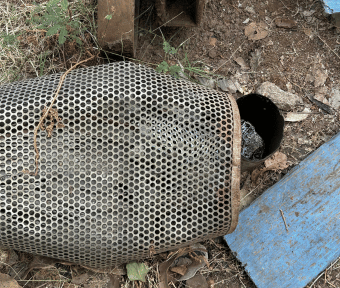Product | 03 Apr 2025
Most drivers understand that their vehicles have cooling systems, but few grasp just how critical these systems truly are to engine performance. Coolants serve multiple vital functions simultaneously: preventing engine freezing in cold temperatures, protecting critical components from corrosion damage, and maintaining the delicate heat balance necessary for optimal performance.
There's a common misconception that engine coolant is only crucial during the scorching summer months when temperatures soar and engines run hot. The reality, however, is that Coolant works tirelessly throughout the year to maintain optimal engine temperature, regardless of seasonal conditions. Understanding how coolant functions and why quality matters can make a significant difference in your vehicle's performance, efficiency, and longevity.
The Science Behind Engine Cooling
At its core, an internal combustion engine is essentially a controlled explosion chamber. With each ignition cycle, temperatures inside can reach upwards of 2,000°C. Without an effective cooling system, these extreme temperatures would quickly destroy engine components or cause significant warping and damage. This is where the coolant comes in.
Coolant circulates through the engine block, absorbing heat through a heat exchange process. This heated fluid then flows through the radiator, where it releases the absorbed heat into the atmosphere before cycling back to repeat the process. This continuous cycle keeps engine temperatures within the optimal operating range—not too hot to cause damage, but not too cold to affect combustion efficiency.
But coolant does far more than just transfer heat. A quality coolant:
- Prevents freezing in winter conditions, which could crack engine blocks
- Raises the boiling point to prevent overheating in extreme conditions
- Protects against corrosion throughout the cooling system
- Prevents scale and deposit formation
- Maintains optimal heat transfer efficiency
When Cooling Systems Fail: The True Cost
Many vehicle owners don't appreciate the importance of quality coolant until problems arise. Using water alone (a surprisingly common practice) or low-quality coolants can lead to several serious issues:
- Scaling: Minerals in water or inferior coolants can deposit on surfaces, creating an insulating layer that reduces heat transfer efficiency. These scale deposits act like a blanket, trapping heat inside the engine and preventing proper cooling.
- Corrosion: Without proper corrosion inhibitors, the various metals in cooling systems—aluminum, cast iron, brass, copper, and steel—begin deteriorating. This corrosion weakens components and can lead to leaks or complete system failure.
- Cavitation Damage: When vapor bubbles form and collapse against metal surfaces, they create microscopic pits that eventually develop into larger holes—a process that can perforate cylinder liners and damage water pumps. Quality coolants
- contain additives specifically designed to prevent this destructive process.
- Premature Wear: As cooling system components deteriorate due to improper protection, their efficiency decreases, placing additional strain on the engine. This creates a cascading effect that ultimately reduces engine life and increases maintenance costs.
The Year-Round Performance Imperative
It's worth emphasizing that coolant protection isn't seasonal—it's continuous. In winter, protection against freezing is obvious, but even in moderate conditions, the corrosion inhibitors and lubricating properties remain crucial. During summer months, when ambient temperatures push cooling systems to their limits, the elevated boiling point and heat transfer efficiency become particularly important.
Fleetguard's Comprehensive Cooling Solutions
Understanding these challenges, Fleetguard has developed a range of specialized coolant products designed to provide comprehensive protection throughout the year. Their lineup includes:
Ready-to-Use Formulations: Pre-diluted to the optimal concentration, these products eliminate mixing errors and provide immediate protection.
Concentrated Coolants: For those who prefer to dilute according to specific climate requirements or manufacturer specifications.
Extended Life Formulations: Featuring advanced additive technology that provides longer service intervals without compromising protection.
What sets Fleetguard coolants apart is their comprehensive approach to cooling system protection. Unlike generic alternatives that might focus solely on freeze protection or boiling points, Fleetguard products address the complete spectrum of cooling system requirements. Their formulations provide balanced protection against corrosion, cavitation, scaling, and temperature extremes while maintaining optimal heat transfer properties.
Conclusion
For those seeking industry-leading cooling system protection, Fleetguard offers a comprehensive range of coolant solutions engineered to meet the demands of modern engines. Their scientifically formulated products provide the balanced protection needed to maintain optimal engine temperatures while defending against corrosion, scaling, and cavitation damage throughout the year.
Investing in quality coolant isn't just about preventing overheating—it's about ensuring your engine operates at peak efficiency in all conditions while protecting it against the multiple threats that can compromise cooling system performance. With Fleetguard coolants, you're not just controlling temperature; you're providing comprehensive protection for one of your most valuable assets.








